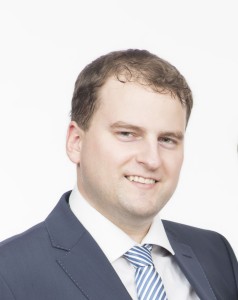What does it mean to you to be a FEL-100?
“First of all being a member of the FEL-100 community gives me the opportunity of meeting a great number of people and building relationships with my peers all around the world. Also participation in FEL taskforces gives me a unique scope of working together with others on the most current topics in the world of energy. I personally believe that the idea of the programme is going to be successful and deliver the new leaders of tomorrow in the energy industry.”
How did you first hear about the World Energy Council and Future Energy Leaders?
“I noticed World Energy Council last year for the first time thanks to my PhD supervisor. He was asked by the National World Energy Council Committee to recommend possible FEL candidates. After that I didn’t hesitate and applied immediately.”
What highlight events have you attended?
“So far I've attended the Executive Assembly 2015 in Ethiopia, as I only joined the programme last year. It was an invaluable experience to know how the world of energy works, as well as the possibility of networking.”
What are the benefits of being a FEL?
“Besides what I have already mentioned, I think the true benefits lie in being in the centre of action. Access to information, participation in think-tanks and learning from others naturally accelerates personal growth.”
Talk about your nomination to the Forbes 30 under 30 lis
“I was given an opportunity by our FEL-100 chair, Pirjo Jantunen, to apply like all the FELs who were under 30. In the end after several rounds, a committee comprised of a blue-ribbon panel of experts picked a list of exceptional 30 people from the European industry. I believe that I made it to the list due to my PhD work for a Czech transmission systems operator, where I helped solve an issue with dynamic line rating in order to deal with peak power loads that usually come from renewables.”
And on a final note would you like say something about the future
“As we witness progress in technology every day, the impact on the energy sector becomes inevitable. Actually, by increasing the share of green energy sources, the growing need of new technical solutions will require further investments in order to secure safe and stable energy supply.
“I think that while the present top-down design is being transformed by distributed smaller-size power sources like photovoltaics, new paradigms in distributing, transmitting and more importantly storing energy are going to emerge. Decentralization of power sources brings additional requirements on operators, but allows end users like households, buildings or cities to increase energy supply safety and stability in both developed and developing countries. In other words I expect a transformation of energy grids towards interconnected but independent small-scale islands.
“I believe that the many tasks ahead together with advances in technology will redefine the energy sector as we know it.”






